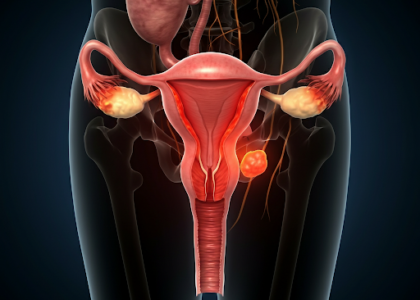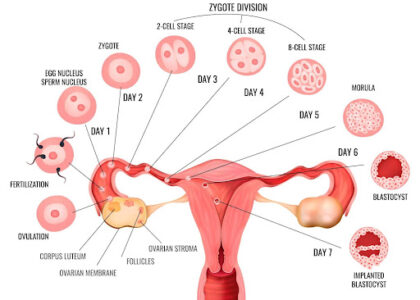As an expert gynecologist with 30 years of experience, I’ve encountered numerous cases of endometriosis and understand the profound impact it can have on a woman’s fertility and overall well-being. This blog post aims to shed light on the connection between endometriosis and infertility, and discuss the available treatment options.
Understanding Endometriosis
Endometriosis is a condition where tissue similar to the lining of the uterus (the endometrium) grows outside of the uterus.1 These endometrial implants can attach to various organs, including the ovaries, fallopian tubes, and surrounding tissues. During menstruation, this tissue bleeds, causing inflammation, pain, and the formation of scar tissue (adhesions).
The Link Between Endometriosis and Infertility
While the exact reasons why endometriosis causes infertility are not fully understood, several factors are likely at play:
- Distorted Pelvic Anatomy: Endometrial implants and adhesions can distort the normal anatomy of the pelvis, making it difficult for the egg to travel from the ovary to the fallopian tube.
- Inflammation: The inflammation caused by endometriosis can create a hostile environment for sperm and eggs, hindering fertilization.
- Ovarian Dysfunction: Endometriomas (cysts formed by endometriosis on the ovaries) can interfere with ovulation.
- Impaired Implantation: Endometriosis may affect the uterine lining, making it less receptive for a fertilized egg to implant.
Treatment Options for Endometriosis-Related Infertility
The good news is that there are effective treatments available to help women with endometriosis conceive. The choice of treatment depends on several factors, including the severity of the endometriosis, the woman’s age, and her overall health.
1. Surgery:
Laparoscopic surgery is often the first line of treatment for endometriosis-related infertility. During this minimally invasive procedure, a surgeon can remove endometrial implants and adhesions, improving the chances of natural conception.
2. Medications:
- Hormonal Therapy: Medications like birth control pills, GnRH agonists, and progestins can help suppress the growth of endometrial tissue and reduce pain. However, these medications are not typically used during attempts to conceive as they prevent ovulation.
- Ovulation Induction: If ovulation is a problem, medications like clomiphene citrate or letrozole can stimulate the ovaries to release eggs.
3. Assisted Reproductive Technologies (ART):
- Intrauterine Insemination (IUI): IUI involves placing sperm directly into the uterus, increasing the chances of fertilization.
- In Vitro Fertilization (IVF): IVF is a more complex procedure where eggs are retrieved from the ovaries, fertilized with sperm in a laboratory, and the resulting embryos are transferred2 to the uterus. IVF can bypass many of the fertility challenges posed by endometriosis and offers a higher success rate.
Conclusion
Endometriosis can be a challenging condition, but with the right treatment, many women with endometriosis can achieve their dream of parenthood. If you’re struggling with infertility and suspect you may have endometriosis, don’t hesitate to seek help from a qualified gynecologist. Early diagnosis and appropriate treatment can significantly improve your chances of conception and overall quality of life.






Recent Comments